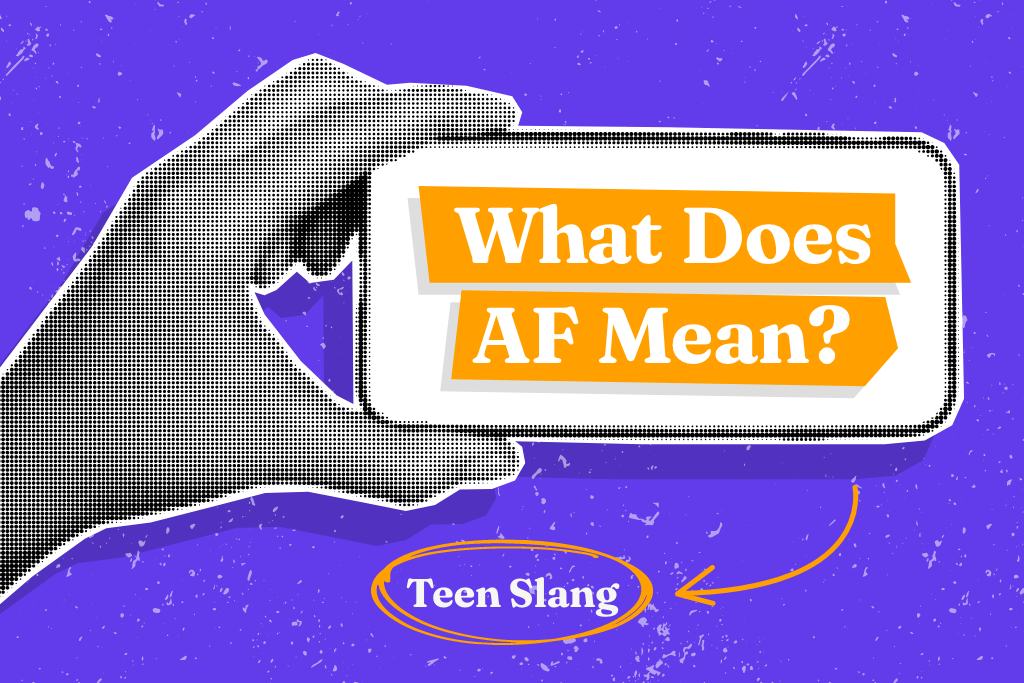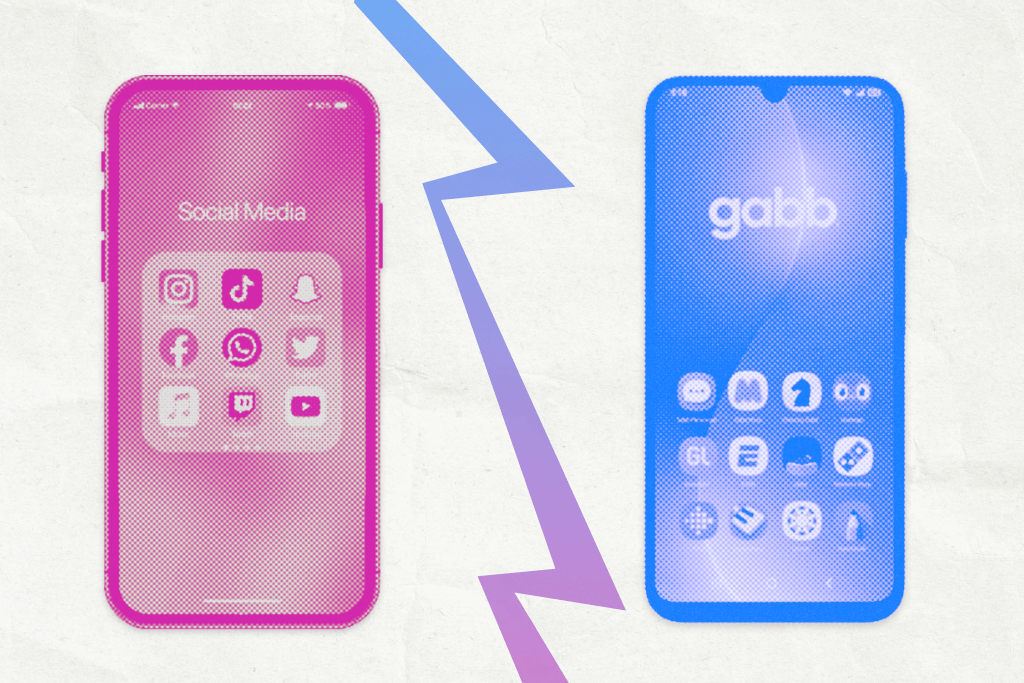You’re cooking in the kitchen when your teen and his friends come barging in like a pizza-roll-hunting stampede. It’s hard to keep up as they speak in a nonstop stream of verbal shorthand, but one thing catches your ear.
“That was crazy AF.”
A…F? You’ve heard it on Instagram and seen it in memes but… what is it? Is it harmless? Is it crass? Or is it just one more entry in the ever-growing slang dictionary your kids use—whether they know what it really means or not?
Let’s break it down.
“AF” Meaning: What does it actually stand for?
To put it plainly, “AF” stands for “as f**k.” It’s used for emphasis in the same way someone might say “really,” “super,” or “totally.”
So when a teen says, “I’m tired AF,” they mean they’re really tired. Or if they say “that outfit is cute AF,” they saying it’s very cute—dramatically so.
Even though the F-word is implied, it’s not always spoken or written out. But the meaning is definitely there, and that’s why it’s worth talking about.
Is “AF” a Curse Word?
Technically?… no. But it’s a strong abbreviation for one.
Kids and teens often use abbreviations like “AF” to soften the impact of actual swearing. It’s like a casual shorthand that helps them sound expressive without fully crossing a line.
That said, AF is still rooted in profanity. It may not be explicit, but it’s not exactly polite either.
Why Is “AF” Slang So Popular?
Who knows. It’s fast, expressive, and sounds funny when paired with unexpected words:
- “That was awkward AF.”
- “He’s lucky AF.”
- “I’m hungry AF right now.”
It’s part of a broader trend in Gen Z slang where intensity gets shortened. Think of it like texting shorthand, because it is. While “as f***” has been around for decades, the shorthand “AF” rose to popularity through texting, memes, and social media, where speed (and sometimes censorship) has given slang a new shape.
Should Parents Be Concerned?
That depends on context. Seeing AF in a chat or caption usually isn’t cause for alarm—but it is an opportunity to talk about language, tone, and how your child wants to present themselves.
If you feel uncomfortable with your child using it, you could try asking, “I noticed you use ‘AF’—do you know what it means?”

This gives them space to explain their understanding and gives you a natural way to share yours.
If you’re not okay with it, you can explain why. Kids are often more receptive to boundaries when they feel heard first.
Messaging That’s Safe AF (And Friendly)
Slang can be harmless, or a mask for something deeper. Need a messaging app that lets you know when things cross a line? Gabb Messenger keeps conversations clean, safe, and free from spam or risky content. It’s texting that keeps you in the loop—without the loopholes.
And if you’ve heard any new slang words that’s left you scratching your head, feel free to drop them in the comments and we’ll break them down!








Success!
Your comment has been submitted for review! We will notify you when it has been approved and posted!
Thank you!